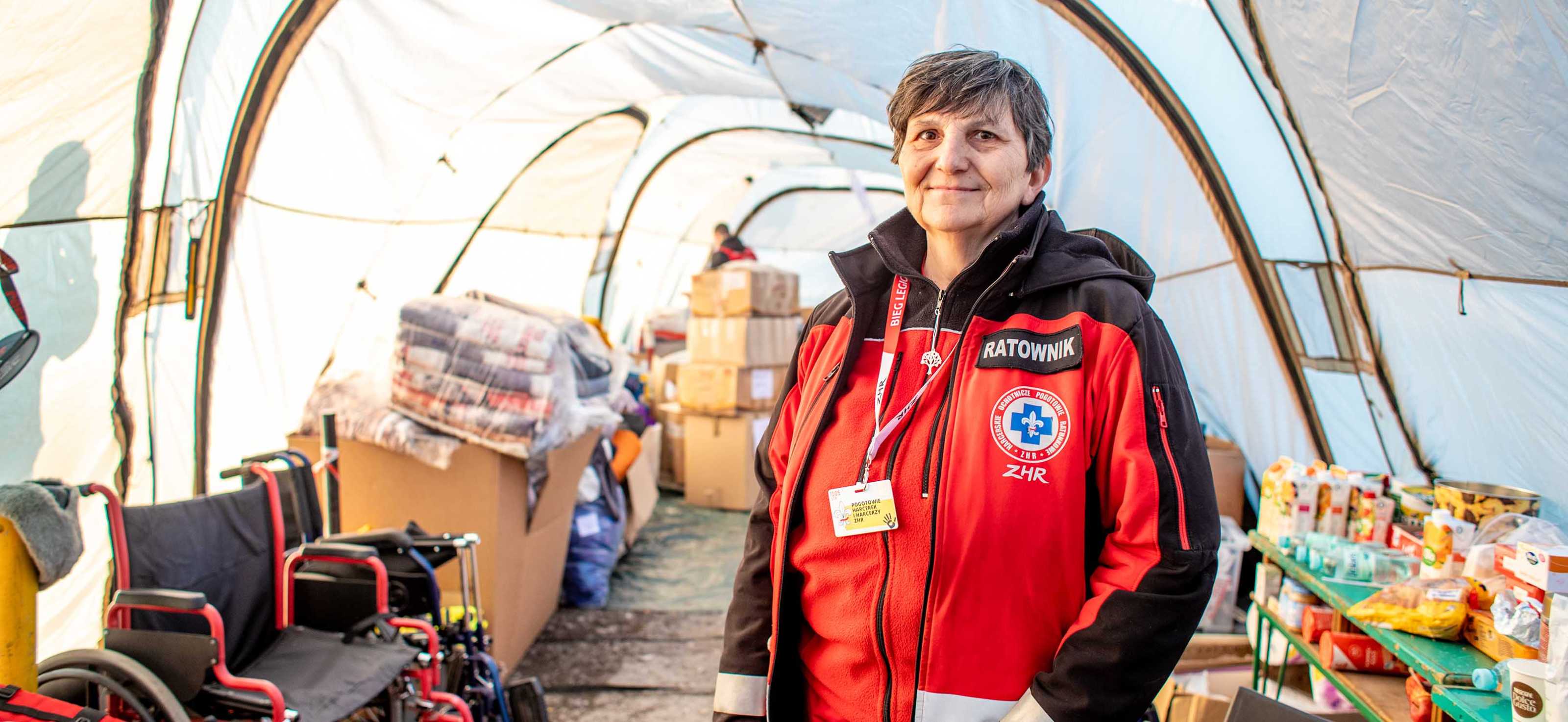At a transit center in Poland crowded with thousands of Ukrainian refugees, a woman approaches a tent where a volunteer doctor is distributing basic medications. She and the volunteer don't speak the same language, but she holds out her inhaler, and he understands: her medication has run out.
"I was talking to a Ukrainian woman at the train station," says another volunteer who coordinates refugees' onward journeys to other cities in Europe. "She asked me a question about going to Germany: 'Will I be able to continue my chemotherapy there?'"
Millions of Ukrainians fled their homes not just terrified, but sick. Sick with chronic diseases, sick with basic or more serious illnesses, sick with contagious diseases picked up on packed trains. Treating them and all refugees around the world is a monumental challenge. Here’s what three medics on the frontlines are saying about the urgent needs you can help us meet:
'We need medicines'
"The thing we need most is medicines. We need painkillers. We need something that will bring down high blood pressure, we need stuff that will help with heart problems. And (specialized) medicines. We are, for example, taking special medicines for a boy that has a problem with his lungs, with breathing. Also bandages and gauzes, painkillers, defibrillators, and all different things.
“It's a small miracle for me when we help someone. (A mother) was really scared and she has four children. The boy had a really high fever. It was 39 degrees Celsius (102.2° F). And so because of the medicines we gave to him, we took it to 37 degrees and she could go further, to a different place, a place where there were showers and fresh food and people that take care of her."
— Ada, medical volunteer in a clinic in the Krakow train station and ambulance driver from Poland to Ukraine
Caring for Ukraine's mothers and children
"Most often they come to us with colds, with fever, with a sore throat. There's also fainting: like older women with hypertension, diabetes. Either a drop in their sugar level or high sugar. We see panic attacks.
"There are a lot of abrasions. We also need things like cough drops, feminine hygiene products, wet wipes for babies. Nursing mothers and toddlers need hygiene products for nursing, changing babies and cleaning/sanitizing the bottles."
— Lidia, Polish nurse in a medical tent at a border crossing with Ukraine
Your gift will help save lives
"We are providing first aid, but we also organize the medications. One of the biggest problems is that the people coming, a lot of them left their homes without medications. And most of those medications, it's the Ukrainian medications. So we need to find something similar and give it to them."
— Aleksandr, paramedic volunteering at a transit center for refugees in Poland
Your gift to Corus World Health will help us rush lifesaving medication and supplies to Ukrainians who desperately need them—and to the health workers who are working night and day to save them. Your generosity will also help patients throughout the world.

